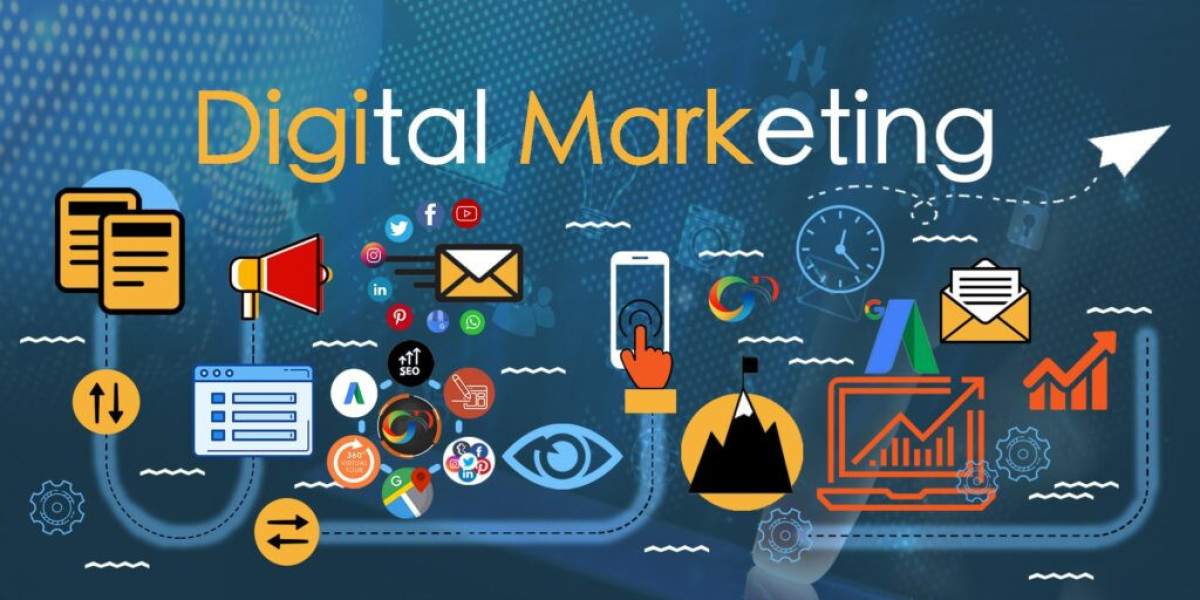In today’s digital age, businesses need to leverage online platforms to remain competitive and grow. This is where digital marketing agencies come in, offering a range of services such as SEO, social media management, content creation, and paid advertising. However, with countless agencies available, choosing the right one can feel overwhelming. Picking the right digital marketing agency can make or break your online success, so it's crucial to make an informed decision.
1. Assess Your Business Needs and Goals
Before you start your search for a digital marketing agency, it’s essential to clearly define your business needs and goals. Understanding what you aim to achieve will help you narrow down agencies that specialize in the services you need.
- Identify Your Marketing Goals: Do you need help with SEO, PPC advertising, social media management, or content creation? Perhaps you want to boost your website traffic or improve your conversion rates. Defining your objectives will allow you to target agencies with the right expertise.
- Set a Budget: Knowing how much you're willing to invest in digital marketing will guide you toward agencies that fit within your budget. Keep in mind that digital marketing is an investment, and opting for the cheapest agency may not always yield the best results.
- Determine Your Timeline: Are you looking for quick wins or long-term strategies? Short-term goals like boosting sales may require a different approach compared to long-term brand-building objectives.
Taking time to outline your marketing goals will ensure that you’re selecting an agency that aligns with your business’s vision and needs.
2. Understand the Different Types of Digital Marketing Agencies
Not all digital marketing agencies are the same. Understanding the types of agencies available will help you match their services with your business needs.
- Full-Service Agencies: These agencies offer a wide range of services, from SEO to PPC, content marketing, and social media. They are ideal if you’re looking for an all-encompassing digital marketing strategy.
- SEO Agencies: Specializing in search engine optimization, these agencies focus on improving your website’s ranking on search engines like Google. If your primary goal is to increase organic traffic, an SEO-focused agency is the best choice.
- PPC Agencies: If paid advertising (e.g., Google Ads, Facebook Ads) is your focus, you may want to choose a PPC agency that specializes in managing paid campaigns.
- Social Media Marketing Agencies: These agencies focus on managing your social media presence, creating engaging content, and driving customer interaction through platforms like Instagram, Facebook, and Twitter.
- Content Marketing Agencies: If you need help with blog writing, video production, or other forms of content creation, content marketing agencies will focus on building a content strategy that aligns with your brand.
Knowing the different types of agencies will help you zero in on the one that best meets your objectives.
3. Check Their Experience and Expertise
Experience matters when choosing a digital marketing agency. An agency that has worked with businesses in your industry or has a proven track record can often bring more value to the table.
- Industry Experience: Has the agency worked with clients in your specific industry? While not essential, industry experience can give the agency a better understanding of your target audience, competitors, and market dynamics.
- Proven Track Record: Look for case studies, testimonials, or success stories that demonstrate the agency’s ability to deliver results. Successful past campaigns show that the agency knows how to implement effective strategies.
- Certifications and Awards: Agencies that hold certifications from platforms like Google, Facebook, or HubSpot demonstrate their expertise in managing digital marketing tools. Awards and recognition from industry organizations also signal high-quality service.
4. Evaluate Their Digital Marketing Strategies
Any reputable digital marketing agency should be able to explain the strategies they use to achieve results. Ask agencies to provide a clear overview of their marketing approach and how it aligns with your goals.
- Data-Driven Approach: Does the agency rely on data to inform their strategies? Data is critical for tracking performance and making adjustments. Agencies that use analytics tools like Google Analytics or SEMrush to drive decisions will likely produce better results.
- Transparency in Strategy: Ask about the specific tactics the agency plans to use, whether it’s keyword research for SEO, targeted ads for PPC, or audience segmentation for email marketing. A transparent agency will walk you through their plan and explain why it’s the best approach for your business.
- Customization: Beware of agencies that offer one-size-fits-all solutions. A good agency will customize their strategy based on your business’s unique goals, audience, and industry landscape. Every business is different, and marketing strategies should reflect that.
5. Assess Their Communication and Collaboration Skills
Effective communication is essential when working with a digital marketing agency. You want an agency that listens to your needs, offers regular updates, and collaborates closely with your team.
- Communication Channels: Find out how the agency communicates with clients. Do they use email, phone calls, or project management tools like Trello or Asana? Regular communication ensures that you're always in the loop on your campaigns’ progress.
- Reporting and Analytics: Ask about how frequently the agency provides reports and the metrics they track. You should receive detailed reports that offer insights into key performance indicators (KPIs), such as website traffic, lead generation, conversion rates, and ROI.
- Point of Contact: Ensure that you’ll have a dedicated account manager or point of contact who will oversee your campaigns and be available to answer your questions. A dedicated manager ensures smoother collaboration and project management.
6. Request Case Studies and References
A reputable digital marketing agency should have no issue providing case studies or references from previous clients. Case studies give you a concrete idea of what the agency has accomplished and whether they have experience handling challenges similar to yours.
- Case Studies: Request case studies that showcase the agency’s ability to achieve measurable results. This could include improving website traffic, increasing lead generation, or boosting conversions. Case studies demonstrate the agency’s real-world impact.
- Client References: Don’t hesitate to ask for client references. Speaking directly to past or current clients will give you a better understanding of the agency’s strengths, weaknesses, and overall performance.
- Online Reviews: Check third-party review sites like Google My Business or Clutch to see what other clients have said about the agency. Consistently positive reviews are a good sign that the agency delivers on its promises.
7. Consider Pricing and Value for Money
Digital marketing services can vary widely in terms of cost, so it's important to understand what you’re paying for and whether it offers good value for money.
- Compare Pricing Models: Different agencies may charge by the hour, per project, or on a retainer basis. Ensure that the pricing structure aligns with your budget and project needs.
- Understand What’s Included: Make sure the pricing includes everything you need, from strategy development to implementation and reporting. Some agencies may charge extra for certain services like PPC ad spend or content creation, so it's important to clarify all costs upfront.
- Balance Cost with Expertise: While it’s tempting to choose the cheapest option, consider the agency’s expertise and the potential return on investment (ROI) their services can generate. A more experienced agency may charge higher fees but deliver far better results, making it a worthwhile investment.
8. Start with a Trial Project
Once you’ve shortlisted a few agencies, consider starting with a smaller, trial project before committing to a long-term partnership. This could be a single campaign or a three-month project, allowing you to evaluate the agency’s performance.
- Evaluate Their Performance: During the trial project, assess how well the agency delivers on its promises. Are they meeting your expectations? Are they communicating regularly and providing data-driven insights?
- Gauge the Working Relationship: A trial project also gives you a sense of how well you can collaborate with the agency. Good chemistry and seamless communication are critical for a successful long-term partnership.
If the trial goes well, you can move forward with a more extensive, ongoing agreement.
Conclusion
Choosing the right digital marketing agency can be a game-changer for your business’s online success. By following this step-by-step guide, you’ll be well-equipped to assess potential agencies and find one that aligns with your goals, expertise, and budget. Remember, the right agency will not only offer the services you need but will also act as a strategic partner to help you grow and thrive in the digital world.
FAQs
What are the most important factors when choosing a digital marketing agency?
The key factors include understanding your business goals, evaluating the agency’s experience and expertise, ensuring they offer transparent communication, and reviewing their track record through case studies and references.How can I tell if a digital marketing agency is a good fit for my business?
A good fit comes down to their ability to understand your business needs, customize their strategies, and provide regular updates and reports on progress. Starting with a trial project is a great way to gauge compatibility.Is it better to choose a full-service digital marketing agency or a specialized one?
It depends on your specific needs. Full-service agencies offer a wide range of services, while specialized agencies focus on specific areas like SEO or PPC. Choose based on your business goals and which services you prioritize.








